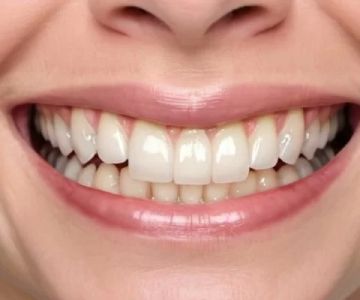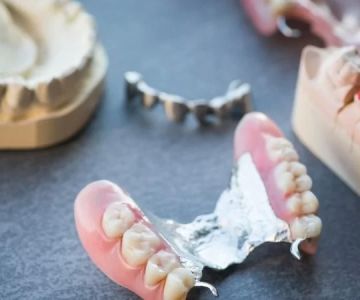
How to Prevent Receding Gums with Proper Care: Essential Tips for Healthy Gums
- 1. What Are Receding Gums and Why Should You Care?
- 2. Common Causes of Receding Gums
- 3. Early Signs of Receding Gums
- 4. How to Prevent Receding Gums with Proper Care
- 5. Real-Life Story: A Preventable Gum Recession
1. What Are Receding Gums and Why Should You Care?
Receding gums occur when the gum tissue that surrounds your teeth pulls back, exposing more of the tooth or even the tooth’s root. This not only makes your teeth look longer but can also lead to tooth sensitivity, decay, and other serious oral health problems. It's essential to understand the causes and signs of gum recession so that you can take steps to prevent it early.
Without proper care, receding gums can lead to significant dental issues, including tooth loss. Fortunately, there are steps you can take to protect your gums and maintain a healthy smile.
2. Common Causes of Receding Gums
There are several factors that can contribute to receding gums. Understanding these causes can help you avoid them and better care for your gums:
- Poor Oral Hygiene: Failing to brush and floss properly can lead to plaque buildup, which can irritate the gums and cause them to recede over time.
- Gum Disease: Periodontal disease is one of the leading causes of gum recession. As the disease progresses, the gum tissue becomes inflamed, and the gums begin to pull away from the teeth.
- Genetics: Some people are simply more prone to gum recession due to their genetics. If you have a family history of gum disease, you may be at higher risk.
- Brushing Too Hard: While brushing is essential, using a hard-bristled toothbrush or applying too much pressure can damage the gums and lead to recession.
- Hormonal Changes: Hormonal shifts, such as those experienced during pregnancy or menopause, can increase the risk of gum recession due to changes in the body’s sensitivity to bacteria.
- Tobacco Use: Smoking or using tobacco products can contribute to gum disease and, in turn, gum recession.
3. Early Signs of Receding Gums
Recognizing the early signs of receding gums is crucial for taking action before the problem worsens. Some common early signs include:
- Increased Tooth Sensitivity: If your teeth become more sensitive to hot or cold, it could be a sign that your gums are receding and exposing the tooth roots.
- Visible Gum Line Changes: If you notice that your gums are visibly pulling away from your teeth, it could indicate gum recession.
- Longer-Looking Teeth: As your gums recede, your teeth may appear longer than they used to, a clear indicator of gum recession.
- Loose Teeth: In advanced stages, gum recession can cause the teeth to feel loose or unstable, a sign that the underlying bone may also be affected.
4. How to Prevent Receding Gums with Proper Care
The good news is that with proper care, you can significantly reduce the risk of gum recession and maintain healthy gums. Here are some key steps you can take:
Proper Brushing Technique
Brushing your teeth correctly is one of the most important steps in preventing receding gums. Use a soft-bristled toothbrush and gentle strokes to avoid damaging your gums. Don't brush too aggressively, as this can wear down your gum tissue over time.
Floss Daily
Flossing removes plaque and food particles from between your teeth, where your toothbrush might not reach. Daily flossing can help prevent gum disease and reduce the chances of gum recession.
Use Mouthwash
Rinsing with an antimicrobial mouthwash can help reduce plaque buildup and fight bacteria that contribute to gum disease. Be sure to choose a mouthwash that targets both plaque and gum health.
Visit Your Dentist Regularly
Regular dental checkups are crucial for preventing gum recession. Your dentist can spot early signs of gum disease or recession and recommend preventive treatments to protect your gums.
Avoid Tobacco
Quitting smoking or using tobacco products can significantly improve your gum health. Tobacco use is a major risk factor for gum disease and recession, so avoiding it can reduce your chances of developing these issues.
Manage Stress
Stress can contribute to teeth grinding and jaw clenching, both of which can harm your gums and cause recession. Managing stress through relaxation techniques or using a mouth guard at night can help protect your gums.
5. Real-Life Story: A Preventable Gum Recession
Consider the case of Laura, a 40-year-old woman who noticed that her teeth had started to look longer and felt increasingly sensitive. After visiting her dentist, she learned that her gum recession was caused by improper brushing habits and poor oral hygiene. Thankfully, with the help of her dentist, Laura started using a soft-bristled toothbrush, improved her flossing routine, and began regular dental visits. Over time, she was able to stop the recession from worsening and keep her gums healthy.
Laura’s story is a reminder that with the right care, many cases of gum recession can be prevented or slowed down significantly. Regular monitoring of your oral health and making small adjustments to your daily routine can make all the difference.
Taking steps to prevent receding gums today will help you maintain a healthy, beautiful smile for years to come. If you’re looking for more information or want to book a consultation, visit Dentistry Toothtruth for expert advice and dental care solutions.







 Clove Dental Camarillo4.0 (225 review)
Clove Dental Camarillo4.0 (225 review) Children's Dental FunZone - Pediatric Dentist & Orthodontist - Eagle Rock4.0 (1768 review)
Children's Dental FunZone - Pediatric Dentist & Orthodontist - Eagle Rock4.0 (1768 review) aspen dental, Kevin D. Oh, LLC2.0 (8 review)
aspen dental, Kevin D. Oh, LLC2.0 (8 review) Stillwater Pediatric Dentistry4.0 (11 review)
Stillwater Pediatric Dentistry4.0 (11 review) Glen Allen Dentistry4.0 (235 review)
Glen Allen Dentistry4.0 (235 review) Holland Smiles Dentistry5.0 (235 review)
Holland Smiles Dentistry5.0 (235 review) The Importance of Oral Health Education During Pregnancy for a Healthy Pregnancy
The Importance of Oral Health Education During Pregnancy for a Healthy Pregnancy Best Tips for Brushing Your Teeth Properly for Healthy Gums: Essential Techniques for Oral Health
Best Tips for Brushing Your Teeth Properly for Healthy Gums: Essential Techniques for Oral Health Why Skipping Dental Checkups Can Lead to Bigger Oral Health Problems
Why Skipping Dental Checkups Can Lead to Bigger Oral Health Problems Advantages of Porcelain Dental Restorations
Advantages of Porcelain Dental Restorations How Can Diabetes Cause Tooth and Gum Problems? Preventing and Managing Oral Health Issues
How Can Diabetes Cause Tooth and Gum Problems? Preventing and Managing Oral Health Issues Healthy Habits for Promoting Good Oral Health and Hygiene: Tips for a Healthy Smile
Healthy Habits for Promoting Good Oral Health and Hygiene: Tips for a Healthy Smile